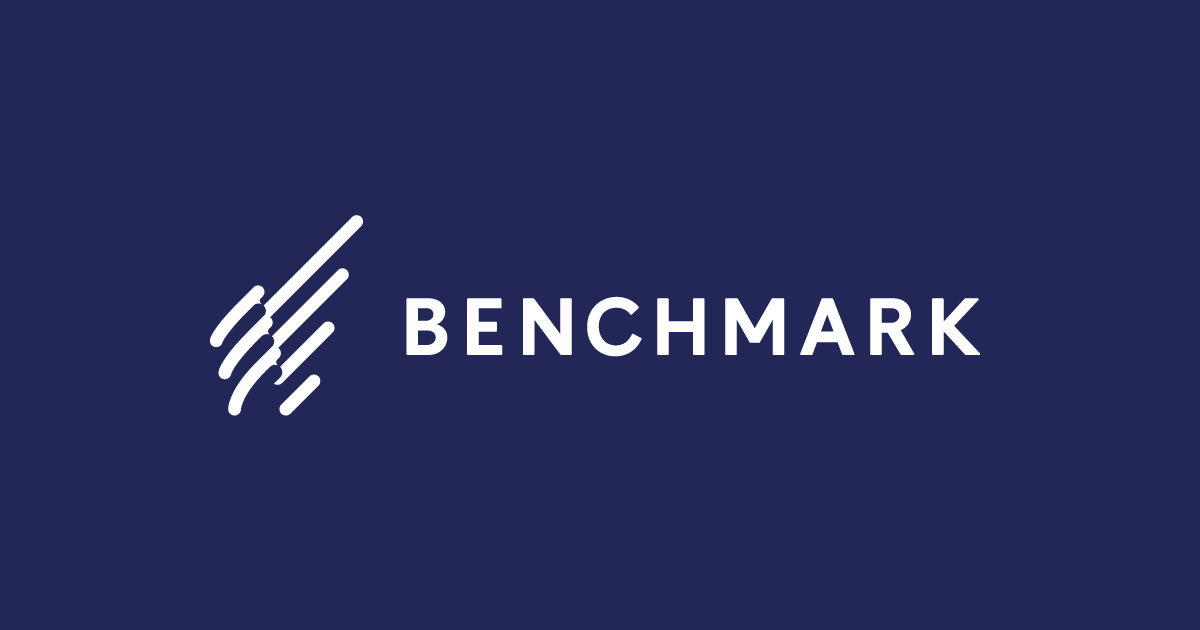As we step into 2024, the digital marketing landscape is more competitive than ever, especially in the realm of email marketing. With an overwhelming array of tools available, choosing the right one can be daunting. Today, we’re zeroing in on two major players: Benchmark Email and Mailshake. Both have made significant waves, but which one truly stands out as the best email marketing tool for this year? Let’s start by comparing their user interfaces and ease of use, crucial factors that can make or break your email marketing strategy.
| Benchmark Email | Mailshake |
|---|---|
 |  |
| G2 Score – 4.3 out of 5 stars | G2 Score – 4.7 out of 5 stars |
| TrustRadius Score – 6.5 out of 10 | TrustRadius Score – 8.6 out of 10 |
User Interface and Ease of Use: Your First Step to Email Marketing Mastery
The user interface and overall ease of use are critical in any email marketing tool. They determine not just how quickly you can launch campaigns, but also how effectively you can manage and optimize them.
Benchmark Email: Intuitive Design for Swift Campaign Management
Benchmark Email is renowned for its clean, intuitive interface. Right from the dashboard, it’s clear that the tool is designed for ease of use. The navigation is straightforward, making it simple to find what you need, whether it’s creating a new campaign, managing your contacts, or analyzing reports.
The email editor is a highlight, offering a drag-and-drop functionality that makes designing emails a breeze. This is especially beneficial for those who aren’t design experts but still want to create visually appealing emails. With a wide array of templates and customization options, Benchmark Email caters to all, allowing users to craft professional-looking emails without any hassle.
Moreover, list management and segmentation in Benchmark Email are straightforward, enabling you to effectively target different segments of your audience with minimal effort.
Mailshake: Streamlined Interface for Outreach Efficiency
Mailshake, while also user-friendly, takes a slightly different approach. It’s designed primarily for sales and outreach, and this focus is evident in its interface. The tool is straightforward and functional, with a clean layout that makes navigating through various features easy, even for beginners.
Mailshake’s strength lies in its simplicity, especially when setting up outreach campaigns. The platform guides you through each step, from drafting your email to setting up follow-up sequences. While it might not offer the same level of design customization as Benchmark Email, it excels in creating efficient outreach campaigns.
The platform also offers robust list management tools, though with a focus more on lead management and follow-ups, which is crucial for sales-driven email campaigns.
The Verdict on User Interface and Ease of Use
For those looking for a tool that’s easy to navigate and great for designing and sending marketing emails, Benchmark Email is the ideal choice. Its intuitive design and comprehensive email creation tools are suited for businesses of all sizes.
Mailshake, on the other hand, is perfect for sales professionals and businesses focused on outreach. Its streamlined interface and functionality make it a go-to tool for sales-driven email campaigns.
Deliverability: The Cornerstone of Email Marketing Success
In the world of email marketing, deliverability is king. It doesn’t matter how well-crafted your emails are if they don’t land in your audience’s inbox. Let’s delve into how Benchmark Email and Mailshake handle this crucial aspect.
Benchmark Email: Prioritizing Your Email’s Journey
Benchmark Email has a strong focus on deliverability. They understand that reaching the inbox is the first critical step in a successful email campaign. To achieve this, Benchmark maintains a strong stance against spam, which helps in preserving a high sender reputation. This approach significantly reduces the chances of your emails being flagged as spam.
Additionally, Benchmark offers tools to optimize your emails for deliverability. Features like spam filter testing and email previews in different inboxes help ensure that your emails look good and are less likely to be marked as spam. For businesses with higher email volumes, Benchmark provides dedicated IP options, giving you more control over your sending reputation.
Mailshake: Streamlining Deliverability for Outreach Campaigns
Mailshake approaches deliverability from a sales and outreach perspective. Their platform is fine-tuned to ensure that your outreach emails avoid the spam folder and land in the recipient’s primary inbox. This is crucial for cold emailing and sales campaigns where reaching the inbox can make or break a deal.
Mailshake also offers detailed analytics on email deliverability, allowing you to track open rates, bounce rates, and other vital metrics. This data is key to understanding and improving the effectiveness of your outreach campaigns.
The Verdict on Deliverability
If your primary concern is ensuring that your marketing emails are delivered effectively, Benchmark Email is a reliable choice. Its focus on maintaining a good sender reputation and its deliverability optimization tools make it ideal for marketers.
For those focused on sales and outreach, Mailshake’s targeted approach to deliverability in these areas makes it the better fit. Its capabilities in ensuring that cold emails reach the inbox are particularly valuable for sales-driven campaigns.
Automation and Personalization: Enhancing Engagement and Efficiency
The power of email marketing tools today lies not just in their ability to send emails, but also in how they automate and personalize these communications. Let’s see how Benchmark Email and Mailshake stack up in these crucial functionalities.
Benchmark Email: Streamlining Your Email Strategy
Benchmark Email offers robust automation features that make managing email campaigns more efficient. You can set up automated sequences for various scenarios – welcoming new subscribers, following up on purchases, or re-engaging inactive customers. This automation not only saves time but also ensures timely and relevant communication with your audience.
In terms of personalization, Benchmark Email allows for customization beyond just adding the recipient’s name. You can personalize content based on user behavior, preferences, and previous interactions. This level of personalization can significantly increase the relevance and effectiveness of your emails, leading to higher engagement and conversion rates.
Mailshake: Automation Geared Towards Sales and Outreach
Mailshake’s automation capabilities are tailored more towards sales and outreach. The platform excels in automating follow-up sequences, crucial in sales processes. You can set up multi-step email sequences that trigger based on recipient actions like opens or replies, ensuring persistent and targeted follow-ups.
While Mailshake does offer basic personalization options, its strength lies in automating outreach campaigns rather than in-depth content personalization. It’s more about ensuring your message gets in front of your prospects at the right time with the right frequency.
The Verdict on Automation and Personalization
Benchmark Email is the better choice for businesses looking for a tool that offers comprehensive automation along with advanced personalization capabilities. Its features are well-suited for a broad range of marketing strategies, from nurturing leads to customer retention.
Mailshake, however, is ideal for sales-oriented businesses and professionals. Its automation is focused on streamlining outreach efforts, making it a powerful tool for lead generation and sales campaigns.

Related: Check out our free SEO suite

Integration Capabilities: Expanding Your Marketing Ecosystem
In the digital marketing world, the ability to integrate your email marketing tool with other software is crucial for creating a cohesive and efficient workflow. Let’s compare the integration capabilities of Benchmark Email and Mailshake.
Benchmark Email: Versatile Integration for a Unified Marketing Approach
Benchmark Email stands out with its wide range of integrations. It seamlessly connects with popular CRM systems, eCommerce platforms, and social media tools. This integration capability is vital for businesses looking to synchronize their marketing efforts across various channels.
For example, integrating with a CRM like Salesforce can enable more targeted and personalized email campaigns based on customer interactions. eCommerce integrations, like with Shopify, can automate email responses to customer behavior, such as abandoned cart emails or post-purchase follow-ups.
Mailshake: Focused Integrations for Sales and Outreach
Mailshake, while having fewer integrations than Benchmark Email, focuses on integrations that are crucial for sales and outreach campaigns. It integrates well with CRM tools, which is essential for managing leads and tracking sales activities. Additionally, Mailshake’s ability to integrate with tools for lead generation and prospecting complements its primary use case as a sales outreach platform.
Mailshake’s integrations are designed to streamline the sales process, from lead capture to nurturing and conversion, making it a powerful tool in a sales professional’s arsenal.
The Verdict on Integration Capabilities
Benchmark Email is ideal for businesses seeking a versatile email marketing tool that can integrate with a wide array of other software, enhancing overall marketing strategies. Its broad range of integrations makes it a great fit for businesses looking to create a comprehensive and interconnected marketing ecosystem.
Mailshake, on the other hand, is more suitable for sales-focused businesses. Its integrations are specifically chosen to enhance sales and outreach efforts, making it a powerful tool for professionals in this field.
Analytics and Reporting: Deciphering Campaign Success
Analytics and reporting are the compasses that guide your email marketing strategies, providing insights into what works and what needs improvement. Let’s evaluate how Benchmark Email and Mailshake stack up in offering these crucial insights.
Benchmark Email: In-Depth Analytics for Comprehensive Understanding
Benchmark Email excels in providing detailed analytics and reporting features. You get a comprehensive view of your campaign performance, with metrics like open rates, click-through rates, and bounce rates readily available. This data is crucial in understanding how your audience interacts with your emails and helps in making informed decisions for future campaigns.
What sets Benchmark Email apart is its ability to segment these analytics. You can drill down into specific subsets of your data, such as how a particular demographic is responding to your campaigns. This level of detail is invaluable for refining your targeting and personalization strategies.
Additionally, Benchmark Email’s A/B testing feature allows you to test different elements of your emails, from subject lines to content styles, helping you to optimize your emails for maximum engagement.
Mailshake: Targeted Analytics for Sales and Outreach
Mailshake’s analytics are tailored to sales and outreach activities. The platform provides key metrics like open rates, reply rates, and click rates, which are critical for outreach campaigns. This focus on sales-specific metrics makes Mailshake’s analytics particularly valuable for sales teams and professionals.
Moreover, Mailshake offers insights into the effectiveness of your follow-up sequences, a feature that is crucial in sales-oriented email campaigns. Understanding how prospects interact with your follow-ups can significantly improve your sales strategy and lead conversion rates.
The Verdict on Analytics and Reporting
For businesses seeking detailed analytics on their marketing emails with the ability to segment and dive deep into data, Benchmark Email is the more suitable choice. Its comprehensive reporting tools offer the insights needed to continually refine and improve your email marketing strategies.
For sales professionals and businesses focused on outreach, Mailshake’s targeted analytics provide the specific insights needed to optimize sales campaigns and improve lead engagement and conversion.
Pricing and Affordability: Matching Cost with Value
In the decision-making process for selecting an email marketing tool, pricing is a pivotal factor. It’s essential to balance affordability with the features and value offered. Let’s take a closer look at the pricing structures of Benchmark Email and Mailshake.
| Benchmark Email | Free Plan: Offers basic email marketing features with a subscriber limit and Benchmark branding. Pro Plan: Pricing starts at $13/month for 500 subscribers and includes advanced features like automation, A/B testing, and targeted emailing. The price increases based on the number of subscribers. |
| Mailshake | Email Outreach Plan: Priced at $59/user/month when billed annually. Includes features like email personalization, lead catchers, and analytics. Sales Engagement Plan: Priced at $99/user/month when billed annually. Includes additional features like phone dialer, social selling, and Salesforce integration. Both plans offer features tailored for sales teams and agencies focusing on cold email outreach and sales engagement. |
Benchmark Email: Flexible and Transparent Pricing
Benchmark Email offers a variety of pricing plans to accommodate different needs and budgets. They provide a free plan, which is great for small businesses or beginners in email marketing. This plan includes basic features but has limitations on the number of subscribers and emails sent.
As your business grows, Benchmark Email’s paid plans, based on the number of subscribers, become available. These plans are inclusive of all features, like advanced automation and detailed analytics, providing a clear path for scaling your email marketing efforts. The pricing structure is straightforward and transparent, making it easier for businesses to plan and budget their marketing expenses.
Mailshake: Tailored Pricing for Sales and Outreach
Mailshake’s pricing model is tailored to its core audience of sales professionals and businesses focused on outreach. Their plans are priced based on the features and capabilities offered, aligning with the requirements of sales-focused email campaigns.
While Mailshake doesn’t offer a free plan, their entry-level plan is reasonably priced and includes essential features for effective sales outreach. As you move up their pricing tiers, additional features like advanced analytics and automation become available. This tiered approach allows businesses to choose a plan that best fits their sales and outreach strategies.
The Verdict on Pricing and Affordability
Benchmark Email is a great choice for those looking for a tool with flexible and transparent pricing, especially suited for small to medium-sized businesses and those just starting with email marketing. Its free plan and scalable pricing tiers make it accessible for a wide range of businesses.
Mailshake, with its sales-focused features and tiered pricing, is ideal for sales teams and businesses that prioritize outreach and lead generation. Their pricing aligns with the specialized tools and capabilities they offer for sales-oriented email campaigns.
Conclusion
In the showdown between Benchmark Email and Mailshake for the top email marketing tool of 2024, the choice hinges on your specific needs and goals. Benchmark Email stands out for its user-friendly interface, comprehensive analytics, and flexible pricing structure, making it an excellent choice for small to medium-sized businesses and those new to email marketing. Its broad range of features and scalability caters to a diverse spectrum of marketing strategies, from basic campaigns to complex automations.
Mailshake, on the other hand, is tailored more towards sales professionals and businesses focused on outreach and lead generation. Its specialized features for sales campaigns, targeted analytics, and pricing geared towards sales-oriented activities make it a potent tool for those whose primary goal is to drive sales and engagement through targeted outreach. Ultimately, both tools offer robust capabilities in their respective niches, and the best choice depends on whether your focus is on comprehensive email marketing (Benchmark Email) or sales-focused email outreach (Mailshake).
Read Next:
- The Ethical Dimensions of Content Marketing: Navigating Gray Areas
- The Science Behind Shareable Content: What Triggers Virality?
- Long-Form vs. Short-Form Content: Which is Right for Your Brand?
- User Intent and Content Creation: Meeting Your Audience’s Needs
- The Synergy of Content Marketing and Social Media: A Winning Combo






















Comments are closed.